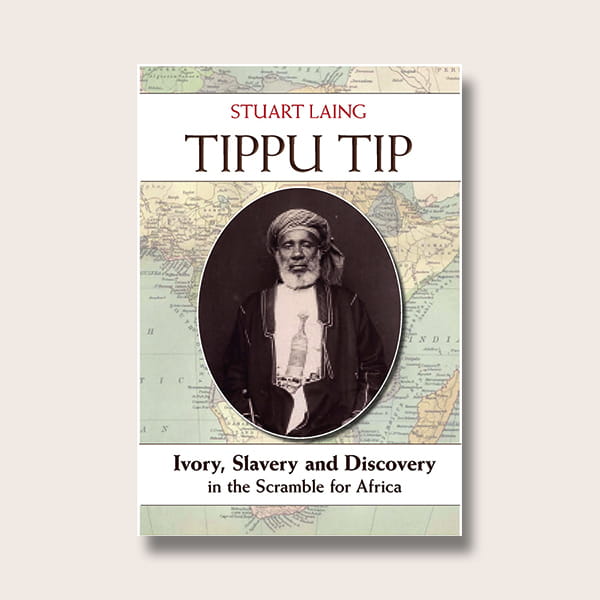
Tippu Tip: Ivory, Slavery and Discovery in the Scramble for Africa
Charles O. Cecil
Stuart Laing
2017, Medina Publishing, 978-1-91148-705-0, £25 hb.
The extent of Oman’s penetration of Central Africa through Omani Zanzibar well into the 19th century may not be fully appreciated by many readers today. Stuart Laing’s highly readable, carefully researched portrayal of Hamed bin Mohammed al-Murjabi (1832–1905), known in the West as Tippu Tip, helps remedy that. He outlines not only the extent of influence and power of Tippu Tip, but also notes other important Omanis in what today are Tanzania, Rwanda, Burundi, Uganda and eastern Congo. While professing loyalty to the sultan of Zanzibar, Tippu Tip exercised considerable personal authority in East Africa’s Great Lakes region for many years, assisting several European explorers. Laing shows that while he owned and used slaves in his trading caravans, he was primarily interested in the ivory trade, his most profitable activity. Through Tippu Tip’s eyes, Laing sketches Europe’s territorial acquisition in Africa (the “Scramble”), which the Arabs, whose concept of loyalty came through family, clan and tribal links, were ill-equipped to resist. An extensive annotated bibliography guides those wishing to delve further into this fascinating period.
You may also be interested in...

Archaeology and Geology of Ancient Egyptian Stones—Book Review
In categorizing the stones the ancient Egyptians used, author James A. Harrell unites geology, archeology and cultural history in one monumental reference.
A History of Mali’s National Drink Traces Green Tea—Book Review
By tracing ritual instead of commerce, anthropologist Ute Röschenthaler shows that the story of tea in West Africa involves multidirectional routes and local agency.